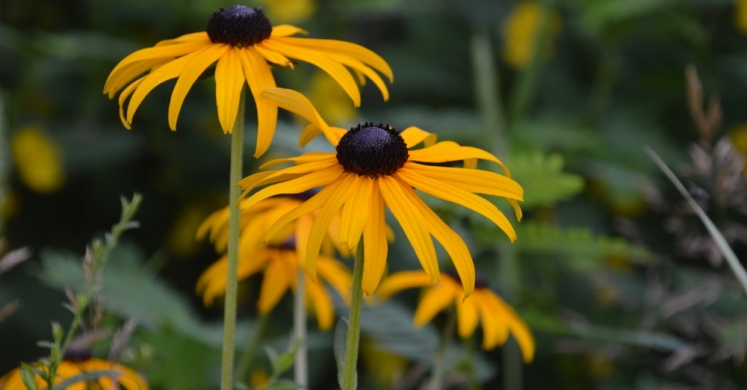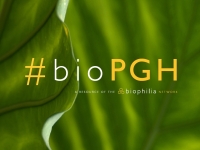Phipps Stories

#bioPGH Blog: Black-Eyed Susans
 A resource of Biophilia: Pittsburgh, #bioPGH is a weekly blog and social media series that aims to encourage both children and adults to reconnect with nature and enjoy what each of our distinctive seasons has to offer. From the best times to plant seasonal flora and enjoy their peak blooms, to astronomical events and creatures to keep an eye and ear out for, Phipps will keep you in the know with what’s going on in our environment!
A resource of Biophilia: Pittsburgh, #bioPGH is a weekly blog and social media series that aims to encourage both children and adults to reconnect with nature and enjoy what each of our distinctive seasons has to offer. From the best times to plant seasonal flora and enjoy their peak blooms, to astronomical events and creatures to keep an eye and ear out for, Phipps will keep you in the know with what’s going on in our environment!
Black-eyed Susans, also known as Rudbeckia hirta, are one of the most popular wildflower species grown throughout North America from June through October. And while this may be the state flower of Maryland, these black and gold blossoms are also native to Pennsylvania and are showcased in the newly established meadow at Beacon and Bartlett Streets in Schenley Park. Not only are black-eyed Susans eye-catching, but these and other native wildflowers are also an important resource for several species of pollinators that call our city home, including: butterflies, beetles, bees, wasps, bats, ants, moths, and hummingbirds!
Connecting to the Outdoors Tip: Wildflowers like the black-eyed Susan can be found throughout the city, and in addition to their important role in the lives of pollinators they’re simply a nice sight to see! Pittsburgh has plenty of green spaces and parks to enjoy so consider having lunch outside or planning a weekend picnic and see how many native flowers and pollinators you can identify. If you’re feeling particularly crafty, try your hand at flower pressing and see how many native species you can collect!
Continue the Conversation: Share your nature discoveries with our community by posting to Twitter and Instagram with hashtag #bioPGH, and R.S.V.P. to attend our next Biophilia: Pittsburgh meeting.
Additional Resources:
The Pennsylvania Floral Project of Morris Arboretum
What's in Bloom - Pittsburgh Parks Conservancy
Animal Pollination - United States Department of Agriculture
Pressed Flowers: How to Make Your Own - Better Homes and Gardens

